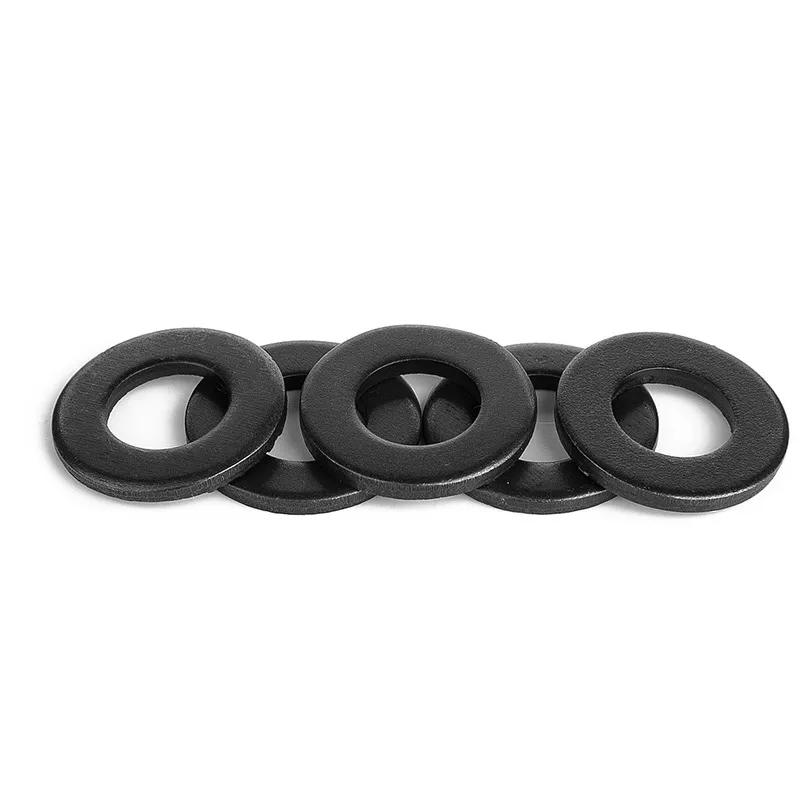

types of steel washers
Sep . 19, 2024 06:49 Back to list
types of steel washers
Types of Steel Washers
Steel washers are essential components in various mechanical applications. They serve several purposes, including distributing loads, preventing leakage, and providing insulation between components. Understanding the different types of steel washers available can help you choose the right one for your specific needs. Here, we will discuss the most common types of steel washers and their respective applications.
1. Flat Washers Flat washers are the most commonly used type of washer. They have a plain, flat surface that allows for even load distribution when a nut or bolt is tightened. Flat washers come in various sizes and thicknesses, making them suitable for a wide range of applications, from household items to industrial machinery.
2. Lock Washers Lock washers are designed to prevent loosening of bolts and nuts due to vibrations or torque. They come in several variations, including split lock washers and star lock washers. Split lock washers create tension by compressing when fastened, while star lock washers have teeth that bite into the bolt and surface, providing a stronger hold. These washers are especially useful in automotive and heavy machinery applications where maintaining tight connections is crucial.
3. Spring Washers Spring washers are used to absorb shock and vibration. They can also help maintain tension in a bolted joint. These washers are typically used in applications involving fluctuating loads, like in automotive engines or machinery that experiences movement. Coiled spring washers and wave washers are two common types in this category, each designed for specific load-bearing capacities.
types of steel washers

4. Fender Washers Fender washers are larger than standard flat washers, featuring a larger outer diameter that provides a greater load distribution area. They are often used in applications where a traditional washer could pull through a thin material or where additional surface area is required to prevent damage. They find regular use in construction, automotive, and craft projects.
5. Sealing Washers These washers incorporate a rubber or plastic seal to prevent leakage. They are often used in plumbing and hydraulic applications, where maintaining fluid integrity is vital. Sealing washers help minimize wear and tear and provide a reliable, leak-proof connection.
6. Annotated Washers Annotated or notable washers have features that allow for additional functions. For example, they may have markings or ridges that provide extra grip or help in alignment of components. These washers are less common but can be beneficial in specialized applications.
In conclusion, the selection of the right type of steel washer depends on the specific requirements of the application, including load distribution, resistance to vibrations, and sealing capabilities. Understanding the different types of steel washers and their functions can ensure the reliability and longevity of your mechanical assemblies. Always consider the operating environment and material compatibility when choosing the appropriate washer for your project.
Latest news
-
Hot Dip Galvanized Bolts-About LongZe|High Strength, Corrosion Resistance
NewsJul.30,2025
-
High-Strength Hot Dip Galvanized Bolts - Hebei Longze | Corrosion Resistance, Customization
NewsJul.30,2025
-
Hot Dip Galvanized Bolts-Hebei Longze|Corrosion Resistance&High Strength
NewsJul.30,2025
-
High-Strength Hot-Dip Galvanized Bolts-Hebei Longze|Corrosion Resistance&High Strength
NewsJul.30,2025
-
Hot Dip Galvanized Bolts-Hebei Longze|Corrosion Resistance&High Strength
NewsJul.30,2025
-
Hot Dip Galvanized Bolts - Hebei Longze | Corrosion Resistance, High Strength
NewsJul.30,2025

